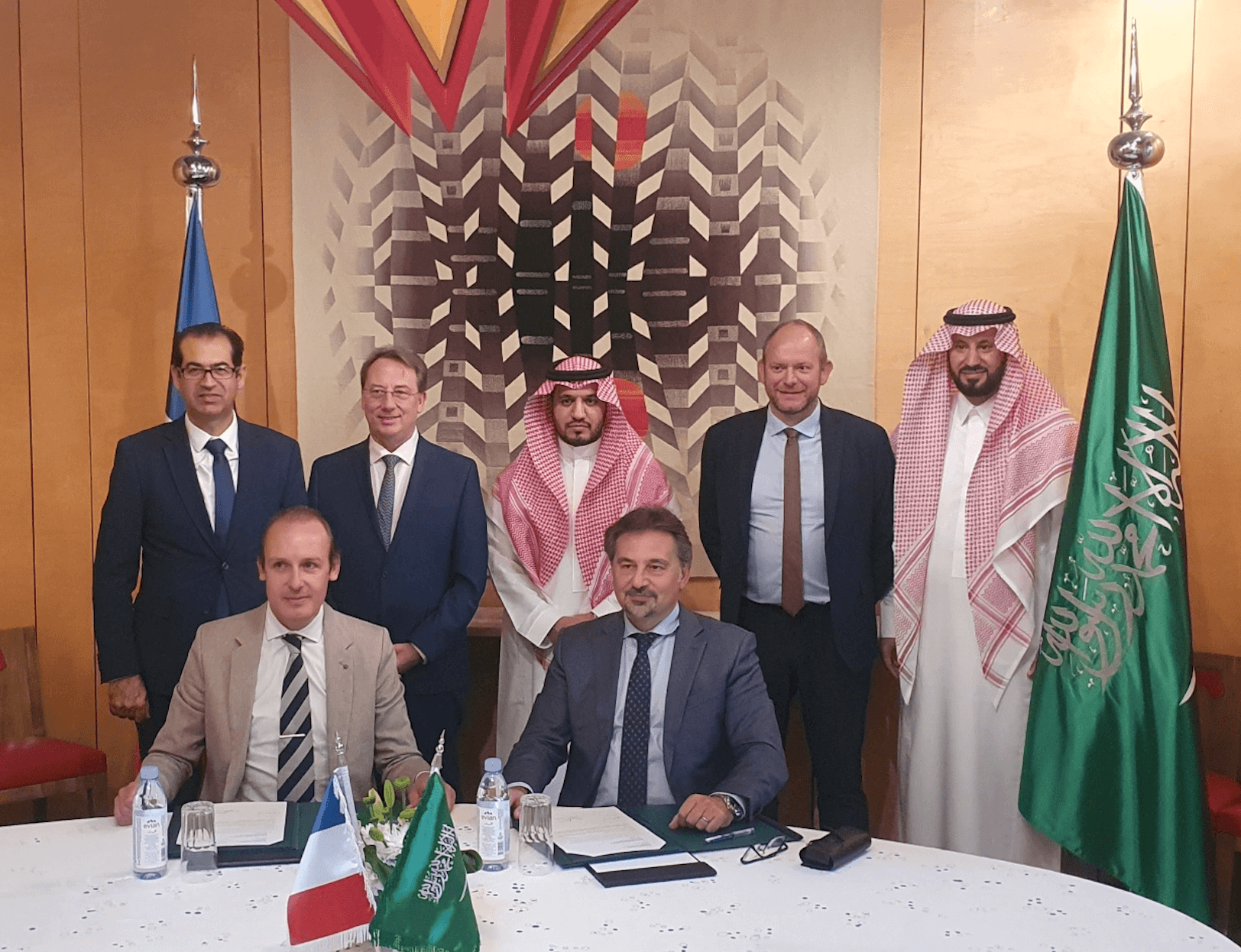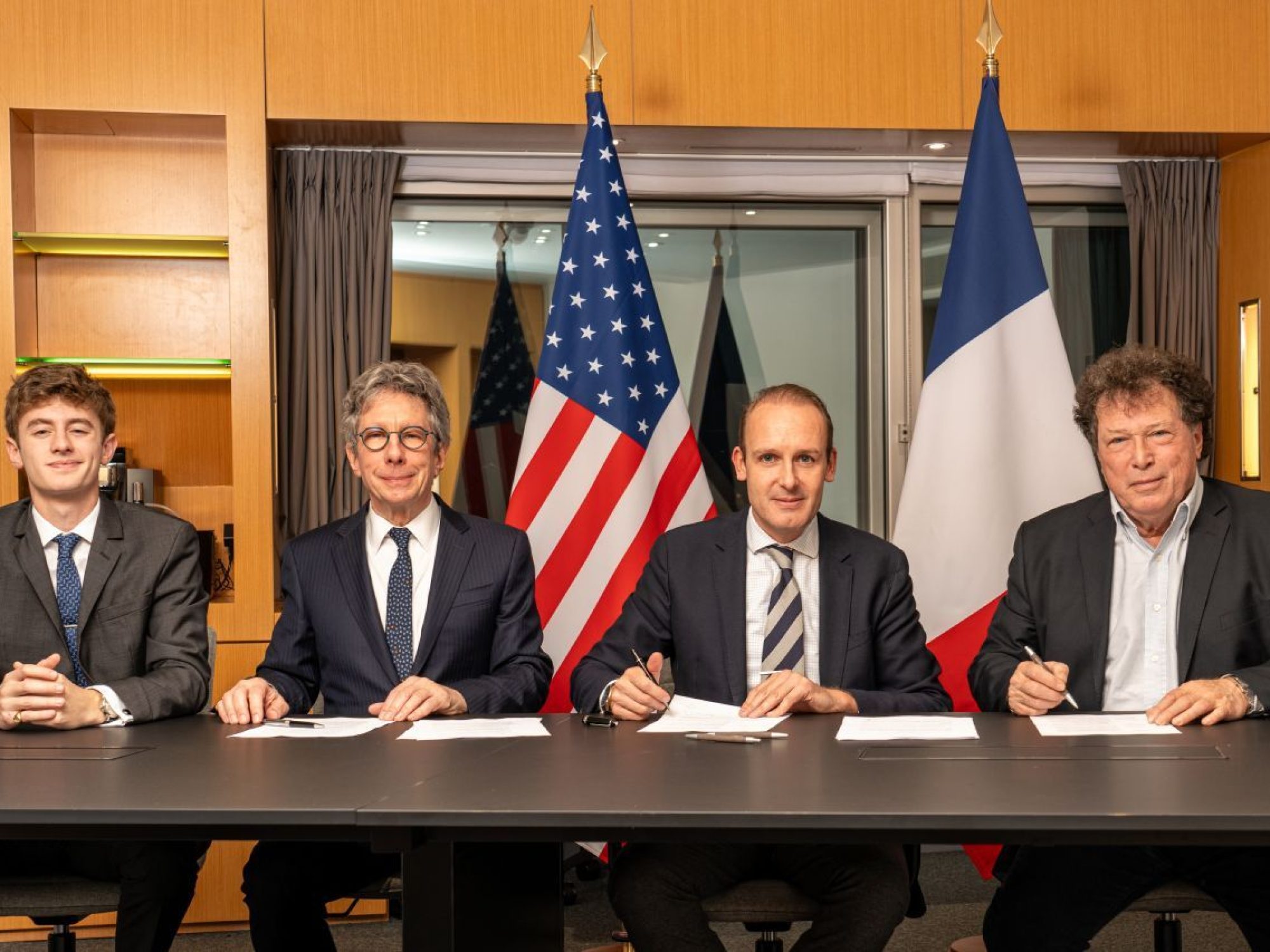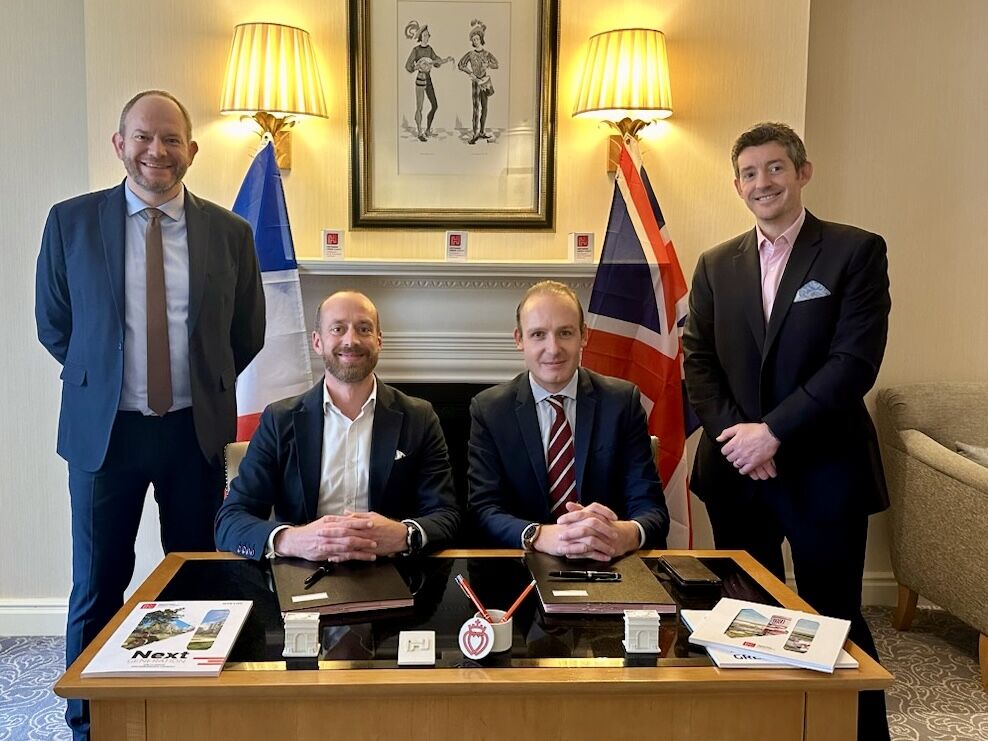

Accelerating the global transition of the sector
Our new geographic expansions in the United States and Saudi Arabia enable the deployment of our low-carbon cements on a global scale.
Based on an exclusive licensing model, these contracts enable the creation of vertical cement plants modelled on the H2 model, which is unique in the world.
This international deployment meets a dual ambition: to accelerate the adoption of low-carbon cements in strategic markets and to contribute locally to the ecological transition.
It enables local, sustainable production, avoiding import-related emissions and meeting growing demand for environmentally-friendly materials. This expansion also reinforces our mission: to make low-carbon construction accessible on a large scale.
Thomas Atkinson
International director of Hoffmann Green
Saudi Arabia: a strategic partnership for Vision 2030

As part of a partnership with the g Shurfah Group, an exclusive 22-year licensing agreement has been signed. The project calls for the construction of four vertical cement plants, starting with unit H-KSA 1, on which work began in 2024 at the Rabigh site.
These cement plants will play a key role in the ambitious Vision 2030 plan, which places ecological transition at the heart of Saudi Arabia’s economic modernisation. By locally producing low-carbon cements without clinker, we are helping to build eco-responsible “Smart Cities”, a central pillar of the region’s sustainable development strategy.
This exclusive licensing model allows the Shurfah Group to market its cements exclusively in Saudi Arabia. Through this partnership, Saudi Arabia will benefit from pioneering technology in the sustainable construction sector.
Expansion in the United States: a new era for low-carbon construction

Our international development continues with the signing of an exclusive 30-year licensing agreement in the United States. A major agreement that marks a key stage in the extension of its sustainable production model.
This partnership comes at a time when the United States, through the Inflation Reduction Act (IRA), has made ambitious commitments to reduce greenhouse gas emissions by 50% by 2030.
Sustainable construction, thanks in particular to innovative materials such as low-carbon cement, is a strategic foundation of this energy transition. By partnering with local players, we are helping to achieve these environmental goals while modernising the construction sector.
United Kingdom and Ireland: the future of sustainable construction

A strategic partnership with Cemblend Ltd marks a further step in the commitment to decarbonising construction in the UK and Ireland. This exclusive licensing agreement provides for the establishment of local production units, enabling an effective response to growing demand for sustainable materials.
These new cement plants play a key role in the transformation of the construction sector on the European continent. By producing 0% clinker cement locally, they help to reduce import-related emissions and support the region’s ecological transition.